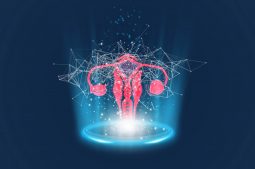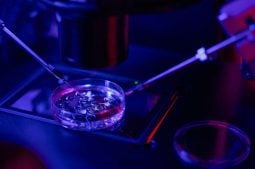

Is there a dominant follicle ovary ? In the human reproductive system, the ovaries contain thousands of primordial undeveloped follicles. Each one of them has the potential to develop into an egg which through the ovulation, but very few do. The one, or occasionally two, which make it to maturity each month will have become… View Article

Hysterosalpingogram, also known as hysterosalpingography, is a gynecological imaging test used to evaluate the uterus and fallopian tubes with the help of contrast material. It is common in fertility evaluations to detect possible blockages or abnormalities that could hinder conception. The procedure is like a routine gynecological exam and does not require hospitalization. How should… View Article

There is no scientific evidence suggesting that mud itself affects male fertility. However, contact with certain environmental contaminants—such as heavy metals that may be present in mud—can have negative effects on sperm quality. What Is Mudding or Mud Bathing? Mudding is a relaxing activity that offers several benefits thanks to the minerals present in the… View Article

11Yes, you can get pregnant after ovulation, but only for a short time. You are more likely to get pregnant if you have sex before ovulation. This might be contrary to the picture you had in your mind of a passive egg ‘waiting’ to be fertilised by a sperm. More often it’s the other way… View Article

Period cramps vs early pregnancy cramps: what’s the difference? Abdominal discomfort is quite common in virtually all women. This may be a premenstrual symptom or something typical of the early months of pregnancy. But how can one distinguish the origin of menstrual cramps? In this article, we address this issue, helping you better understand the differences… View Article

Vaginismus is a sexual dysfunction characterized by the involuntary contraction of the vaginal muscles, leading to vaginal tightness. As a result, it causes pain, discomfort, and limitations for the woman. According to a review compiled by Leiblum (2006), based on the only known European epidemiological study to date, mild or occasional vaginismus has a prevalence… View Article

Folic acid is an essential vitamin that plays a key role in overall health, especially for women trying to conceive. While it’s most commonly known for helping prevent neural tube defects during pregnancy, many wonder: Can folic acid actually increase fertility? In this article, we’ll explore the connection between folic acid and fertility, how it… View Article

If you’re thinking and hoping that you’re pregnant, it can come as an unwelcome surprise to have what may appear to be the start of your period. But all is not lost! It’s possible that what you mistake for menstruation bleeding is in fact implantation bleeding, also called implantation spotting (as it’s not such a bleeding). If this is the… View Article

A unicornuate uterus is a congenital malformation of the female reproductive system in which one half of the uterus fails to develop properly. This results in an asymmetrical uterus with only one functional horn. Although it is a rare condition, it can have a significant impact on fertility and pregnancy outcomes. This article explores the… View Article

The 11th International IVIRMA Congress, recently held in Barcelona, brought together over 1,300 professionals, researchers, and academics from 58 countries to discuss the most promising advances in reproductive medicine. For several days, the city became the epicenter of scientific innovation in fertility, genetics, microbiota, artificial intelligence, and biotechnology. Through an extensive program of keynote lectures,… View Article
